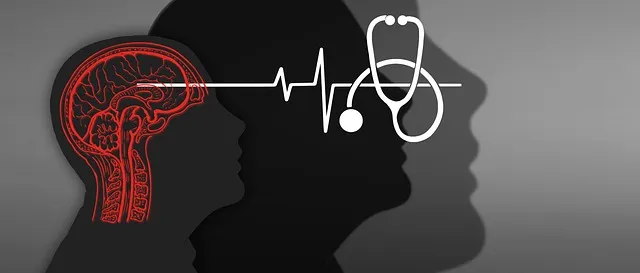Kaiser Permanente training programs Boulder provide mental health professionals with comprehensive risk management strategies. Through initiatives like Community Outreach, Mindfulness Meditation, and Conflict Resolution Techniques, they learn to navigate complex scenarios involving confidential information, interpersonal interactions, and digital sources. These programs enhance clinical decision-making, provider well-being, and work-life balance, reducing burnout rates while highlighting Kaiser Permanente's innovative approach in mental health care risk mitigation.
In today’s demanding mental health landscape, effective risk management planning is paramount for professionals. This article guides mental health practitioners through a comprehensive approach to identifying and mitigating risks. We explore the critical aspects of understanding risk in mental health practice, drawing insights from renowned organizations like Kaiser Permanente. Furthermore, we delve into their training programs, offering a practical framework inspired by Boulder-based best practices for navigating complexities with resilience.
- Understanding Risk in Mental Health Practice: Identifying Potential Hazards and Vulnerabilities
- The Kaiser Permanente Approach: Exploring Training Programs for Comprehensive Risk Management
- Implementing Effective Risk Mitigation Strategies: A Practical Guide for Mental Health Professionals
Understanding Risk in Mental Health Practice: Identifying Potential Hazards and Vulnerabilities

Mental health professionals constantly navigate complex scenarios filled with potential risks and vulnerabilities. Understanding risk in this context goes beyond mere recognition; it involves meticulously identifying and assessing hazards that could impact both clients’ mental well-being and practitioners’ professional integrity. This process is a cornerstone of effective risk management planning, crucial for maintaining safe, ethical practices.
At Kaiser Permanente training programs Boulder, professionals are equipped with the knowledge to identify risks stemming from various sources, including interpersonal interactions, confidential information handling, and even the digital realm. The Community Outreach Program Implementation and Mental Wellness Coaching Programs Development emphasize proactive measures to mitigate these risks. Incorporating practices like Mindfulness Meditation can also bolster resilience and emotional regulation, thereby enhancing practitioners’ ability to handle challenging situations.
The Kaiser Permanente Approach: Exploring Training Programs for Comprehensive Risk Management

Kaiser Permanente has pioneered an innovative approach to risk management in mental health care through its comprehensive training programs in Boulder. These programs are designed to equip healthcare professionals with essential tools for navigating complex situations and mitigating risks effectively. By integrating Conflict Resolution Techniques, Self-Care Routine Development for Better Mental Health, and Burnout Prevention Strategies, Kaiser Permanente’s initiative ensures that mental health providers can maintain resilience and deliver high-quality care.
The training covers a range of topics, from managing challenging patient interactions to fostering healthy work-life balance. Through interactive workshops and practical exercises, professionals learn to anticipate potential risks and implement proactive strategies. This holistic approach not only enhances clinical decision-making but also promotes the well-being of healthcare providers, thereby reducing burnout rates and improving overall job satisfaction in this demanding field.
Implementing Effective Risk Mitigation Strategies: A Practical Guide for Mental Health Professionals

Implementing effective risk mitigation strategies is a cornerstone of successful practice for mental health professionals. At Kaiser Permanente training programs Boulder, experts emphasize practical guides tailored to address unique challenges in healthcare settings. These strategies extend beyond mere crisis management, focusing on proactive approaches that cultivate resilient and thriving work environments.
By integrating communication strategies and burnout prevention techniques, mental health providers can create a symphony of support within their practices. This holistic approach, inspired by the comprehensive Mental Wellness Podcast Series Production, equips professionals with tools to navigate complex situations, enhance patient care, and foster personal well-being, ultimately mitigating risks and ensuring sustainable career satisfaction.
Mental health professionals must continually adapt and enhance their risk management strategies to provide safe, effective care. By understanding the unique risks inherent in their practice, they can proactively identify potential hazards and vulnerabilities, as discussed in this article. Adopting evidence-based approaches like the Kaiser Permanente training programs in Boulder offers a comprehensive framework for managing these challenges. Implementing practical risk mitigation strategies, as outlined in this guide, enables mental health professionals to create safer working environments and improve patient outcomes.






